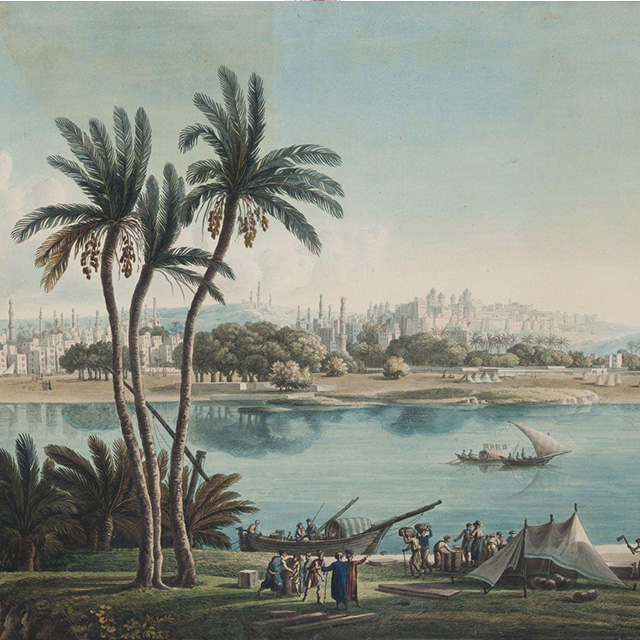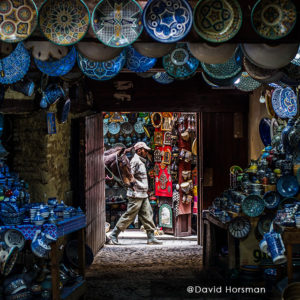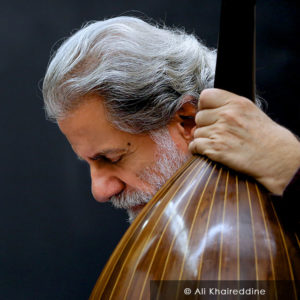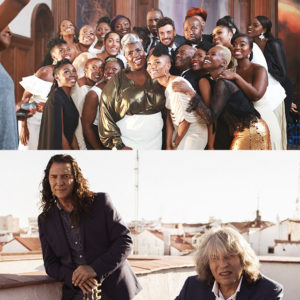Description
Muwashah can take two forms: the waslâ of Aleppo, or the Andalusian nuba. It is often described as the greatest expression of sung Arabic poetry.
Arabo-Andalus Orchestra of Fes
Directed by Mohammed Briouel
Founded by Hadj Abdelkrim Rais of whom Mohammed Briouel was a pupil, this orchestra is considered the oldest and most important exponent of Moroccan Andalusian music. Created in 1946, it took over from the Andalusian Music Ensemble that had existed in Fes since 1912, Fes being one of the cities where the tradition of Arabo-Andalusian music was best preserved after the fall of Granada in 1492.
To ensure the continuity of this art, notably through teaching young musicians wanting to perform Arabo-Andalusian music, the orchestra’s mission is the restoration of this music in its historic form. Therefore, only traditional stringed instruments play in the orchestra.
Omar Sarmini and the Syrian Orchestra of Paris
Musical direction and first violin: Khalil Jerro
Despite the current crisis in this region of the Middle East, when we talk about traditional Syrian music today, we must admit that we cannot help thinking of the fulsomeness of songs from Aleppo that carry as much romance as nostalgia, love and mysticism.
At the heart of Arab culture, the city of Aleppo seemed to be some kind of jewel where the knowledge and refinement of an artistically flourishing city was resplendent, despite rivalry with the powerful Baghdad.
In the 10th century, Aleppo became the capital of the kingdom of Emir Saîf al-Dawla who notably welcomed Fârâbî, the learned musicologist of medieval Islam. Later, in the 14th century, when the Arab world had to face the Spanish Reconquista in Andalusia as well as the growing influence of the Turkish Ottomans in the Middle East, Aleppo preferred the preservation of musical heritage that inspired the Nahda, the renaissance of Arab song that started in Egypt at the end of the 19th century.
Aleppo song demonstrates above all the two styles that constantly interweave: the sung poetry of muwashah (pl: muwashahat) and the hudûd Halabîya, the spirited popular songs that Sabah Fakhrî, himself a native of Aleppo, made so appreciated across the world.
Omar Sarmini is one of the last great icons of the musical art of Aleppo. A musician and composer of a vast repertoire of sacred music, he was brought up on the ritual of dhikr directed by his father, Sheikh Muhammad Sarmini. Often in France playing alongside Julien Jalal Edin Weiss and his Ensemble Al-Kindi, Omar Sarmini is renowned for his interpretation of muwashahat dating back to the 11th century, and for his ability to perform the sacred songs of Sheikh Habboush, grand master of spiritual song.
At the beginning of the 20th century, the traditional eastern ensemble, the takht with oud, qanun, kamân (spike fiddle) and nây (flute), was augmented with a darabuka, a goblet drum, before Arab music adopted the western violin (kaman or kamandja), that gave rise to current large orchestras. Khalil Jerro, outstanding young orchestra leader and violin virtuoso, directs the Syrian Orchestra of Paris and endeavours to present one of the most precious Arab music traditions of our time.




